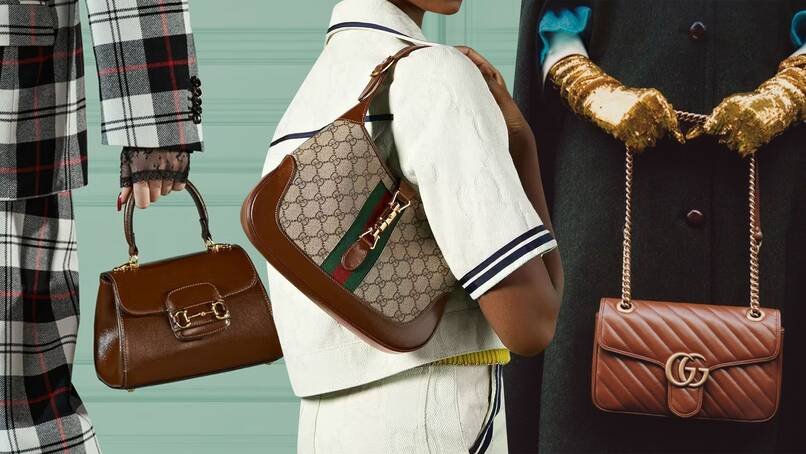The Psychology of Designer Brands
Image Courtesy: Vogue
Most have become enamored by at least one designer brand product at some point since the birth of their consumerist life. I’ve been caught insulting designer collections more times than I can count, yet I will somehow fall for a Gucci handbag within a matter of seconds of entering one of their stores. Whether the product was actually purchased or not doesn’t matter. Designer goods present a window shopper or potential buyer with a feeling that an average product simply can’t. What is that feeling, and why do we feel it?
Perhaps most noticeably, luxury brands produce the illusion of exclusivity. Most well-known luxury brands have existed for decades or over a century. Thus, they’ve had plenty of time to mark their legacy throughout history. If they have survived as a staple among generations to this day, they have likely kept up with and produced unique, never-before-seen products and styles. Building a reputation of specialty among generations of consumers is significant in maintaining a sought-after identity for these brands.
The real root of our impulse to know more about and be involved in the designer brand sphere comes down to psychology, as always. According to Luxuo, “luxury brands are revered for their meticulous attention to detail and unparalleled standard of perfection at every stage of production.” This makes their products significantly desirable to both the common person and someone who can actually afford the product. It’s all about individuality. Yes, someone can buy a Louis Vuitton handbag dupe. However, it will never be the real deal and therefore does not provide the consumer with the same rush of pride and satisfaction that would come with purchasing the name-brand product in-store.
And let’s be honest. Wanting to fit in is human nature. Who wouldn’t want to be a part of the highly glamorized world of opulence, class, and taste accompanying owning a designer product? Books, film, music, and, more recently, social media have long produced an “aesthetic” accompanying having enough money to douse oneself in products from these brands. From Gossip Girl and Sex and the City to the “old money” and “rich girl” aesthetics popularized on TikTok, wealth is always accompanied by renowned designer and luxury brands. Even classic novels somewhat romanticize a world in which money is spent to acquire the best of what the world has to offer and create an image of grand splendor surrounding a wealthy lifestyle. This can be seen in scenes such as those in The Great Gatsby is composed of, which were directly inspired by F. Scott Fitzgerald’s own experience among the elite crowds of the 1920s.
Above all, designer goods possess a quality of status that other brands cannot replicate. Peter Murray, a contributor to Psychology Today, explains that since luxury products “have the power to change the consumer’s perception of who they are…they deliver desired emotional end-benefits, including self-esteem and hedonic feelings, such as satisfaction and power.” Owning a luxury good is a symbol of achievement for many. Yet even if you don’t own a single designer product, having a replica can still make you feel somewhat involved in the world surrounding these brands. Have you ever entered a luxury store such as Neiman Marcus and felt a surge of grandeur from the classy interior design as well as the perfumes, clothes, and shoes around? The environment surrounding richness provides people, consumers or not, with a feeling of success and distinctiveness by being a part of it.
Strike Out,
Parmis Etezady
Boca Raton
Parmis Etezady is a Content Writer for Strike Magazine Boca. In her free time, she likes to take groovy photos, go to concerts (or blast music in her bedroom), and obsess over vintage fashion. You can reach her at @parmisetez on Instagram or at petezady@gmail.com.

